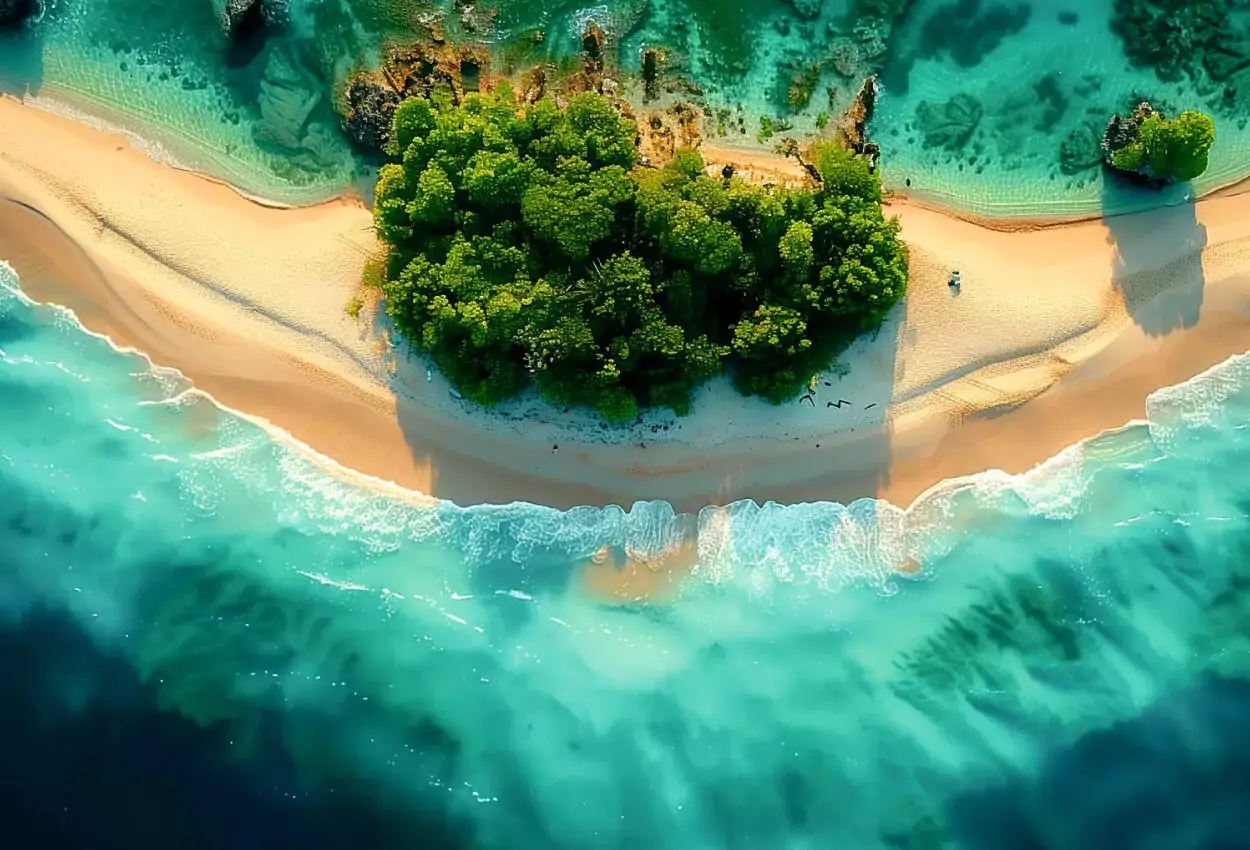The Maldives, a picturesque archipelago in the Indian Ocean, is renowned for its stunning beaches, vibrant coral reefs, and rich biodiversity. However, this tropical paradise faces significant environmental challenges that threaten not only its natural beauty but also its economy and the livelihoods of its people. As climate change, rising sea levels, and other ecological issues intensify, businesses in the Maldives must adapt and build resilience to ensure their survival and contribute to sustainable development.
The Environmental Landscape
The Maldives is uniquely vulnerable to climate change due to its low-lying geography, with an average elevation of just 1.5 meters above sea level. This makes the country one of the most susceptible nations to rising sea levels, which pose a direct threat to coastal communities, infrastructure, and tourism, the backbone of the Maldivian economy. According to the Intergovernmental Panel on Climate Change (IPCC), sea levels are projected to rise by up to 1 meter by the end of the century, which could lead to the loss of many islands and displace thousands of residents.
Additionally, the Maldives faces challenges such as ocean acidification, which adversely affects coral reefs—critical ecosystems that support marine life and attract tourists. Overfishing, plastic pollution, and habitat destruction further exacerbate these issues, threatening the delicate balance of marine biodiversity that is vital for both the environment and the economy.
Impacts on Business
The environmental challenges in the Maldives have profound implications for various sectors, particularly tourism, agriculture, and fisheries:
- Tourism
Tourism accounts for over 30% of the Maldives’ GDP and is the primary source of income for many residents. However, the degradation of coral reefs and marine ecosystems due to climate change can deter tourists, leading to a decline in visitor numbers. Furthermore, rising sea levels threaten coastal resorts and infrastructure, necessitating costly adaptations or relocations.
- Fisheries
Fishing is another critical sector in the Maldivian economy, providing sustenance and employment for many communities. However, overfishing and environmental degradation jeopardize fish stocks, leading to reduced catches and threatening food security. Climate change also affects fish migration patterns, impacting local livelihoods.
- Agriculture
Though agriculture is a smaller part of the Maldivian economy, it plays an essential role in food security. Increased salinity in soil and water due to rising sea levels and climate change poses challenges for farming, affecting crop yields and the viability of agricultural practices.
Building Business Resilience
To navigate these environmental challenges, businesses in the Maldives must adopt strategies that enhance resilience and sustainability. Here are several approaches that can help:
- Sustainable Practices
Businesses can implement sustainable practices to minimize their environmental impact. For example, resorts can adopt eco-friendly technologies, such as solar energy, water recycling systems, and waste management programs. By reducing their carbon footprint and reliance on non-renewable resources, businesses can contribute to environmental conservation while potentially reducing operational costs.
- Investment in Infrastructure
Investing in resilient infrastructure is crucial for protecting businesses from environmental threats. This includes constructing sea walls, elevating buildings, and developing drainage systems to mitigate flooding risks. Collaborations between the government and private sector can enhance infrastructure resilience, benefiting both businesses and communities.
- Diversification of Offerings
To reduce reliance on tourism, businesses can diversify their offerings by exploring opportunities in sustainable agriculture, aquaculture, and renewable energy. For instance, agribusinesses can promote organic farming and focus on high-value crops that are resilient to changing climatic conditions.
- Community Engagement
Engaging local communities in environmental conservation efforts fosters resilience. Businesses can collaborate with communities to promote sustainable fishing practices, conservation of marine ecosystems, and awareness campaigns about environmental issues. Such initiatives not only contribute to ecological preservation but also enhance the reputation of businesses as socially responsible entities.
- Policy Advocacy and Collaboration
Businesses can advocate for policies that support environmental sustainability and climate resilience. Collaborating with government agencies, NGOs, and international organizations can amplify efforts to address environmental challenges. Participation in public-private partnerships can lead to more comprehensive strategies for environmental protection.
The Role of Technology and Innovation
Technology and innovation play a vital role in building resilience against environmental challenges. The adoption of digital tools for data collection and analysis can help businesses monitor environmental changes and adapt their strategies accordingly. For instance, using drones and satellite imagery can aid in assessing coral health, tracking fish populations, and managing agricultural practices.
Moreover, innovative solutions, such as climate-resilient crop varieties and eco-friendly materials, can empower businesses to adapt to changing conditions while minimizing environmental harm. Investing in research and development can yield sustainable practices that benefit both businesses and the ecosystem.
Conclusion
The Maldives stands at a critical juncture where environmental challenges demand urgent attention and action. As a country heavily reliant on its natural resources and tourism, addressing climate change and ecological degradation is essential for ensuring long-term economic viability.
Businesses play a crucial role in this effort by adopting sustainable practices, investing in resilient infrastructure, and engaging with communities to promote environmental stewardship. By building resilience, Maldivian businesses can not only survive but thrive in the face of adversity, contributing to the country’s sustainable development goals.
Ultimately, the path forward for the Maldives lies in the harmonious coexistence of economic growth and environmental preservation. By prioritizing sustainability and resilience, the Maldives can safeguard its natural beauty and ensure a prosperous future for generations to come.



